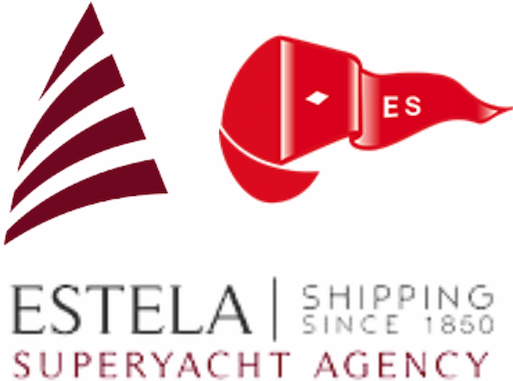By ESTELA Shipping Superyacht Agency
13 June, 2025
The Rock’s border breakthrough promises to end queue chaos, but maritime implications remain murky.
After more than a decade of diplomatic wrangling, Gibraltar has finally secured a political agreement that should transform its notoriously problematic border situation. But while the headlines focus on ending the daily misery of 15,000 cross-border workers, some of whom have endured seven-hour queues just to get to work, the superyacht industry is left wondering what this seismic shift actually means for business.
James van Bregt of ESTELA Superyacht Agency spoke with George Dyke of Incargo Shipping Gibraltar, who’s been at the coalface of these negotiations through his role as Director of the Gibraltar Chamber of Commerce, to unpick the maritime implications of this historic deal.
Watch the conversation here: https://www.youtube.com/watch?v=vVPBgZK602E
The Political Breakthrough
The agreement essentially brings Gibraltar into the Schengen zone while keeping it outside the EU; a diplomatic feat that’s taken years to choreograph. The Rock will become a Schengen territory, creating what negotiators are calling a “fluid frontier” that should finally end the border bottlenecks that have plagued the 15,000 daily workers and 50,000 visitors who cross between Gibraltar and Spain.
Key sidebar: Dyke himself once sat in a car queue for seven hours just to cross into Spain, a testament to just how dysfunctional the current system has become.
Maritime Mechanics: The New Reality
For the yachting sector, the changes are significant but not catastrophic. Here’s what we know so far:
Immigration and Clearance
- Airport-based processing: Yacht crew requiring visa checks will likely be taken to Gibraltar’s airport (just two minutes from the marinas) for joint Spanish-Gibraltarian immigration control
- Agent involvement: Following the Barcelona model, clearances will probably require professional agency services rather than DIY approaches
- Crew visa uncertainty: The current system allowing Filipino, South African, Indian, and other non-EU crew to transit visa-free will disappear, with no confirmed replacement arrangement yet
Tax and Fuel Implications
- Transaction tax incoming: A new levy equivalent to Spanish VAT will replace Gibraltar’s current system of VAT reclaims and import duties
- Fuel remains protected: Crucially for yacht operations, fuel should continue to be treated as “in transit” and remain tax-free
- Provisioning costs: Other yacht services and provisioning will attract the Spanish-equivalent tax, potentially making Gibraltar less competitively priced
The Unfinished Business
Whilst the political framework is in place, crucial details remain unresolved:
EU Exit Role: Gibraltar’s current function as a convenient EU departure point for yacht TAs (including the crucial 18-month rule) is under review. Since Gibraltar remains outside the EU despite Schengen membership, this role may continue—but confirmation is pending.
Maritime Carve-outs: Industry representatives are lobbying for special arrangements for short-stay vessels (under 24-48 hours), but no exemptions have been confirmed.
Visa Processing: Gibraltar has requested the ability to issue Schengen visas locally, but there’s no word yet on whether this crucial facility will be granted.
Timeline Realities
Don’t expect overnight changes. The infrastructure alone tells the story:
- 9-12 months: For airport passport scanning equipment installation
- 12-24 months: For full commercial tax implementation
- Ongoing: Negotiations on yacht-specific arrangements and crew visa solutions
“Businesses will need time to adapt,” notes Dyke, particularly given that Gibraltar “might not be that attractive anymore for high-speed sales” once tax harmonisation takes effect.
Industry Takeaways
For yacht operators: Start planning now for potential changes to crew clearance procedures, but don’t panic about immediate disruption.
For fuel supply: Business as usual expected to continue with tax-free status maintained.
For provisioning: Prepare for potential price increases as Spanish VAT equivalents come into effect.
For itinerary planning: Monitor developments on Gibraltar’s EU exit clearance role; this could significantly impact transit planning.
The Bottom Line
This agreement represents the end of an era for Gibraltar as a duty-free shopping haven, but the maritime sector appears to have escaped the worst of the changes. Fuel operations should remain competitive, and while crew clearance will become more complex, the fundamental attractions of Gibraltar as a strategic yacht destination remain intact.
As Dyke pragmatically concludes: “Nothing’s going to change overnight.” The maritime industry has time to adapt, but smart operators will be watching developments closely as the detail emerges over the coming year.
Further updates and clarifications are expected as negotiations continue between Brussels, Westminster, and Gibraltar.
Quick Reference: Key Changes at a Glance
- Fuel operations: Expected to remain tax-free
- Crew clearance: Moving to airport-based system
- Duty-free shopping: Being phased out
- EU exit role: Under review
- Implementation: 9-24 months for full changes
